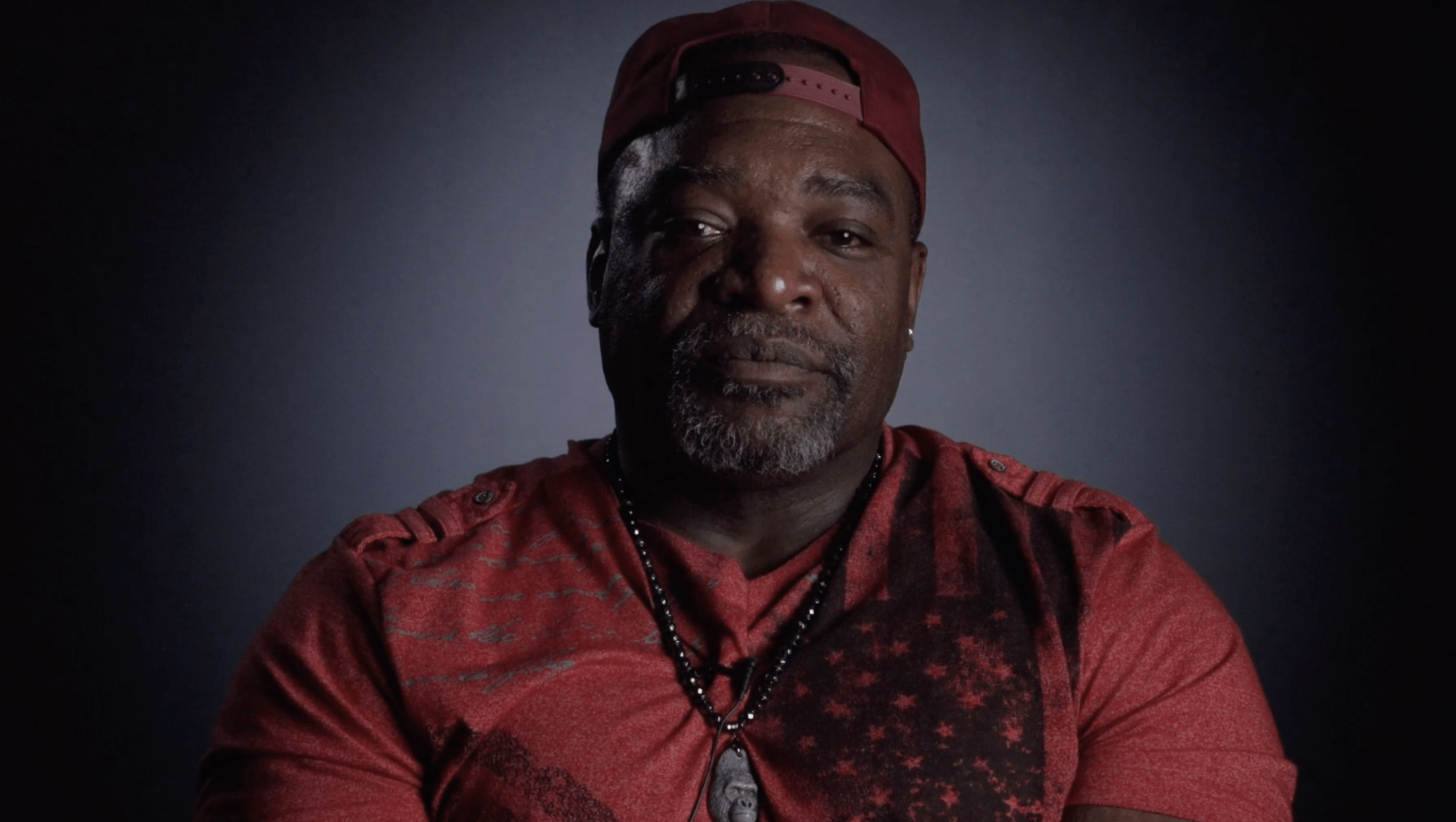For Tanesha Travis, Persons with Lived Expertise Coordinator at Sacramento Steps Forward, the connection between race equity and people with lived experience of homelessness is an obvious and necessary one for homeless response organizations to examine before beginning similar work.
“One of the things I urge communities to really do is look at equity because it is directly tied to people experiencing homelessness,” Travis explained. “It is one of the largest contributing factors to people experiencing homelessness because of all of the other inequitable systems that press down on Black, Indigenous, and People of Color.”
“When you’re engaging with persons with lived experience, a large amount of the folks you’re going to work with are going to be Black, Brown, and Indigenous folks. So you’ll want to talk about how equity is showing up in your organization.”
Built for Zero communities across the country have been striving to involve people with lived experience more directly and formally in local efforts to end homelessness. Intentional engagement with people with lived experience can take a variety of forms — consulting on policies and procedures, joining an organization’s board, revamping a coordinated entry system, or improving a screening tool.
Within this realm, Sacramento, California, is an exemplary community led by Sacramento Steps Forward (SSF), the lead agency in the Continuum of Care (CoC). Their focus on enhancing their engagement with people with lived expertise of homelessness grew from a Racial Equity Plan completed in 2019. The plan revealed gaps and disconnects within the community’s homeless response system, mainly related to historically excluded and underserved Black, Indigenous, and Persons of Color communities.
The team recognized that the only way to identify and close these gaps was by involving people with experience navigating homelessness and who were also members of these underrepresented groups.
Travis was hired in March of 2022 as Sacramento Steps Forward surveyed their relationships across the homeless response system to begin building the Partners with Lived Expertise (PLE) Cohort. In tandem with a Racial Equity Specialist — previously Jillyan Sylvia McKenney and now Anthony Robinson — Travis provides staff support and contributes expertise from her own lived experience of homelessness.
“My job is basically to support them and to push to try and open more doors for them to be part of the work,” Travis explained.
Setting up the cohort
To operationalize their efforts, Travis and her team started by developing the framework for engaging their new partners with lived expertise, beginning with establishing a compensation structure.
“One part of our broader standards of meaningful engagement is to work alongside persons with lived experience as compensated colleagues in the work,” Travis explained. “They don’t just inform on various policies and procedures and give recommendations. They actually work to develop policy, procedures, and programs.”
Because of state laws, all partners had to complete training to be certified as independent contractors, after which they began working at a rate of $50 per hour for all work, including independent material reviews.
Throughout 2022, SSF expanded the cohort of partners with lived expertise through recruitment efforts, which took place within the organization and through intentional outreach within the community. The most successful approach proved to be having members within the cohort recruit their peers. The Cohort grew from three members to ten in the first three months, with the goal of reaching thirty members by the end of 2023.
To build relationships among the partners and other staff, they deemed it essential to hold regular PLE Cohort Meetings every other week. Within these meetings, Travis strives to foster a safe and brave space for the partners, which she recognizes can be challenging: “In some spaces, folks are operating in bravery and not safety, and we are cognizant of that.”

“It’s great that we inform and help build all of these systems to be more equitable and person-centered, but it’s the power sharing where the transformation actually happens.”
— Tanesha Travis, Persons with Lived Expertise Coordinator at Sacramento Steps Forward
Prioritizing opportunities
As a pillar of their engagement framework, the cohort partners decide together how to prioritize their efforts.
“We just identified those areas where meaningful engagement can make a difference, and it just seems to have exploded from there,” Travis said.
The team takes a holistic view of how to support more equitable, people-centered homeless response systems. They do this by focusing their work on increasing equitable and easy access to the homeless response system, codesigning assessment tools, building the capacity of more people with lived expertise to participate in the system, and partnering to strengthen the design of interventions and projects.
The Core Equity Team has been a primary focus of involvement in 2023. This team, composed of the PLE Cohort, HUD Equity Initiative Coaches, homeless response providers, and SSF staff, has gathered to examine the VI-SPDAT, which is a common assessment tool, and the unequal outcomes it produces. They used their project experience to re-envision and craft a new assessment tool, which they are finalizing and plan to pilot on a small family permanent supportive housing project.
A highlight in Sacramento has been the creation of their Housing Problem-Solving Community Initiative, a 42-hour training program offered to people with lived expertise. The program intends to establish future Housing Problem-Solving (HPS) Trainers by training people on the technical pieces of housing problem-solving. Partners in the PLE Cohort have clocked more than 96 hours as the lead facilitators and trainers and continue to provide ongoing mentorship and education. As a result, Sacramento has expanded coordinated entry access by doubling the number of problem-solving access points.
Finally, the U.S. Department of Housing and Urban Development’s Special Notice of Funding Opportunity (SNOFO) was a catalyst for partners to be authentically involved and essential to a project. The SNOFO is the process through which HUD awards funding to communities to implement coordinated approaches to reduce the prevalence of unsheltered homelessness. The funding is earmarked for improving services, health outcomes, and housing stability among highly vulnerable unsheltered individuals and families. In completing the SNOFO, the Partners with Lived Expertise set priorities and pinpointed the types of projects they wanted to be involved in. They were consulted at every step of the application process.
“One of the key things that I think folks miss sometimes in lived experience engagement is it’s great that we inform and help build all of these systems to be more equitable and person-centered, but it’s the power sharing where the transformation actually happens,” Travis said. “That’s moving from just talking about it to actually putting it in action.”
Perspective of a Partner
Darrell Rogers, a native of Sacramento, was the very first partner in the cohort and has worked with Sacramento Steps Forward for 18 months. He and Travis were friends before she worked at SSF, and she brought Rogers on board to help leverage his knowledge and lived expertise of homelessness. Since then, Rogers has helped the cohort grow by single-handedly recruiting six new partners.
“Doing this work has been stimulating, it has been informative, it has been life-changing,” he said.
As a partner, Rogers has worked on projects that include revising the VI-SPDAT and helping to complete the Special Notice of Funding Opportunity (SNOFO). He has also attended the National Alliance to End Homelessness conference in Oakland, California, and participated in multiple housing problem-solving training sessions since he is a trainer himself. This work has allowed him to share his perspective and all of the knowledge he has gained while working with SSF.
“I’ve learned that my experience matters and makes a difference,” he noted. Rogers also recognized how much he has gleaned from his fellow partners in the cohort.
“What I’ve learned is we could have the exact same experience, but a whole other perspective of it. And in that, I think that it creates a lot of space for healing,” he said. “I’ve learned a lot about looking at things from other people’s perspective as well. It’s been humbling.”
Rogers said he felt fortunate to be part of decision-making processes now on a broader scale. He thinks that having people with lived expertise involved in the systemic work to end homelessness allows policymakers and leaders to hear the truth and facts about what actually takes place when a person experiences homelessness.
“Sharing my experience with a person that never has experienced homelessness gives them a better perspective on how to create and manage those policies,” Rogers said.

“I’ve learned that my experience matters and makes a difference.”
— Darrell Rogers, Partner in Sacramento Steps Forward’s PLE Cohort
Addressing challenges to authentic engagement
Through the creation of this cohort, Travis and her team identified specific challenges that they and other communities may face when deepening their work with people with lived expertise.
In their continued effort to create truly equitable and brave spaces in which the PLE Cohort can operate, the team has had to decide what human-centered, trauma-informed engagement really looks like. Travis strives to ensure internal meetings at Sacramento Steps Forward have shifted to centering equity, which includes acknowledging that people have a right to their feelings and the right to disengage. But her team has also had to set expectations for involvement with external stakeholders that may not have a cultural focus on equity. As a result, the cohort developed a structure for navigating challenging situations they may encounter.
“We engage with consultants, the county, the city, with state officials. We sometimes engage with law enforcement. All of those areas are not necessarily as equitable, and we don’t have very much control over what happens or what folks say in those various spaces,” Travis said. “So we share what our expectations are when we engage with other entities outside of SSF, and we do our best to level-set the expectation.”
They also sought to address the technical and logistical challenges that might hinder working together. The team recognized that a critical path to working together more effectively was improving accessibility. This can look like providing the physical technology needs, such as cell phones, computers, and WiFi, but also education and technical support as needed. In addition, Travis’ team has examined their meeting structures and feedback methods, shifting meeting times to the evenings and weekends to accommodate work schedules. They record every meeting and send them to folks who couldn’t attend, and Travis herself follows up with those who weren’t able to make it to see if they have any questions. They also leverage digital tools, sending surveys to collect feedback, brainstorming via JamBoards, or connecting asynchronously via Slack.
“We just had to break the barrier of being siloed in this one way of working and be open to all the options that exist,” Travis noted.
Pushing forward
Travis has seen how partnerships and a network of support have changed how she and her team work together.
“We’ve developed a lot of internal support for our partners. We have a great community of consultants that have really championed the work alongside Sacramento Steps Forward. We have broken a lot of barriers within the community just by showing up and building relationships,” she said.
Looking to the future, Travis is eager to see the PLE Cohort continue to grow and thrive. Not only do they want to bring more partners on board by the end of the year, but SSF is also looking to enact more systems-level change.
The partners are working on formalizing the PLE Policy and Procedure and establishing the PLE Cohort as a part of the Sacramento Continuum of Care. This includes officially adding PLE seats to the Sacramento CoC Board as well as the CoC Governance Committee and creating the PLE Cohort Committee as an official part of the CoC.
“Before, we were sending recommendations to decision-makers,” Travis said. “But that’s no longer the structure — they’re now at the table.”


